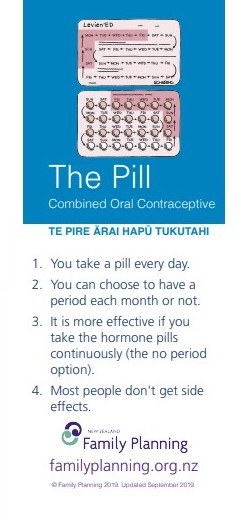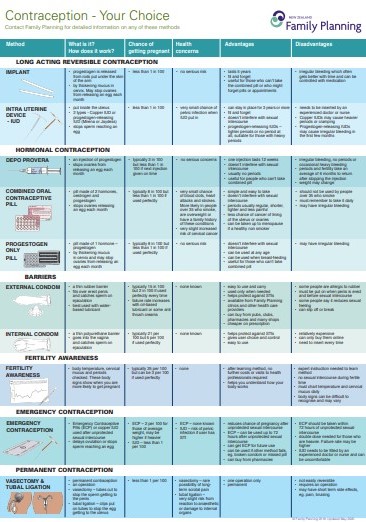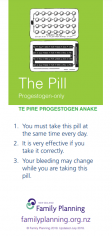The combined pill, also called ‘the pill’, contains the hormones oestrogen and progestogen. It's a pill or tablet that you take every day to stop getting pregnant. It works by stopping ovulation (which is when an egg is released from your ovary). The combined pill is also used to treat heavy menstrual (period) bleeding (also called menorrhagia). It makes the lining of your uterus thinner which makes your periods lighter.
The combined pill is one of the more reliable forms of contraception
- If used correctly, the pill is 99% effective in preventing pregnancy.
- However, most of us are not perfect, and sometimes we forget to take it every day, so in real life it's usually only 92% effective. This means that about 8 out of 100 people who use the pill each year will get pregnant.
- To make sure the pill works best, you need to take it every day, whether you have sex on that day or not. Learn more below about how to take the combined pill.
- It's important to know what do you if you miss a dose. See below what should I do if I miss my dose?.
- It's also important to remember that if you're sick (vomit) soon after taking your pill, or have diarrhoea (runny poo), the pill may not be absorbed and may not work. See below – what if I have diarrhoea (runny poo) and vomiting (being sick)?
Note: The combined pill isn't suitable for everyone. There's information below about who cannot take the combined pill.
There are 2 types of oral contraception available in Aotearoa New Zealand. The combined pill has the hormones oestrogen and progestogen. This page covers information about the combined pill. There is also a progestogen-only pill (or mini pill), which contains only progestogen. Read more about the progestogen-only pill.
Examples of the combined pill
- There are a variety of brands and strengths of the pill available in Aotearoa New Zealand. They contain different combinations of oestrogen and progestogen.
- Your doctor will help you decide the best combination for you.
- If you experience side effects, you may need to try a few different types before you find one that suits you.
Some brands of the pill can be purchased from your pharmacy without a prescription if you meet the criteria. See below: Can the combined pill be purchased without a prescription?
| Examples of the combined pill | |||
|
|
||
Supply issues (August 2024)
|



 Some packs of the combined pill have 21 active pills and 7 non-active sugar pills. The non-active sugar pills are also called non-hormonal placebo or reminder pills. These pills are meant to help you remember to take your pill every day and start your next pack on time.
Some packs of the combined pill have 21 active pills and 7 non-active sugar pills. The non-active sugar pills are also called non-hormonal placebo or reminder pills. These pills are meant to help you remember to take your pill every day and start your next pack on time.





